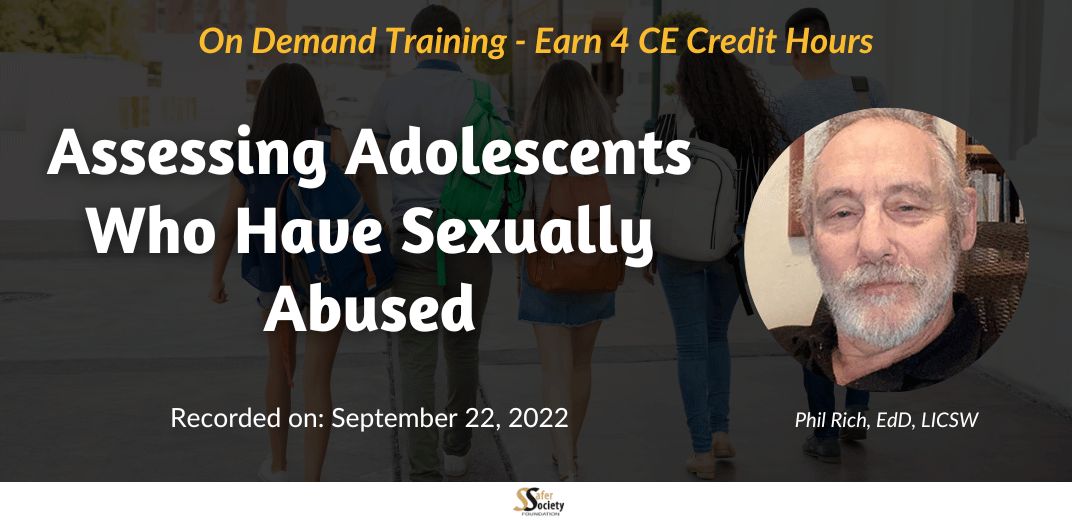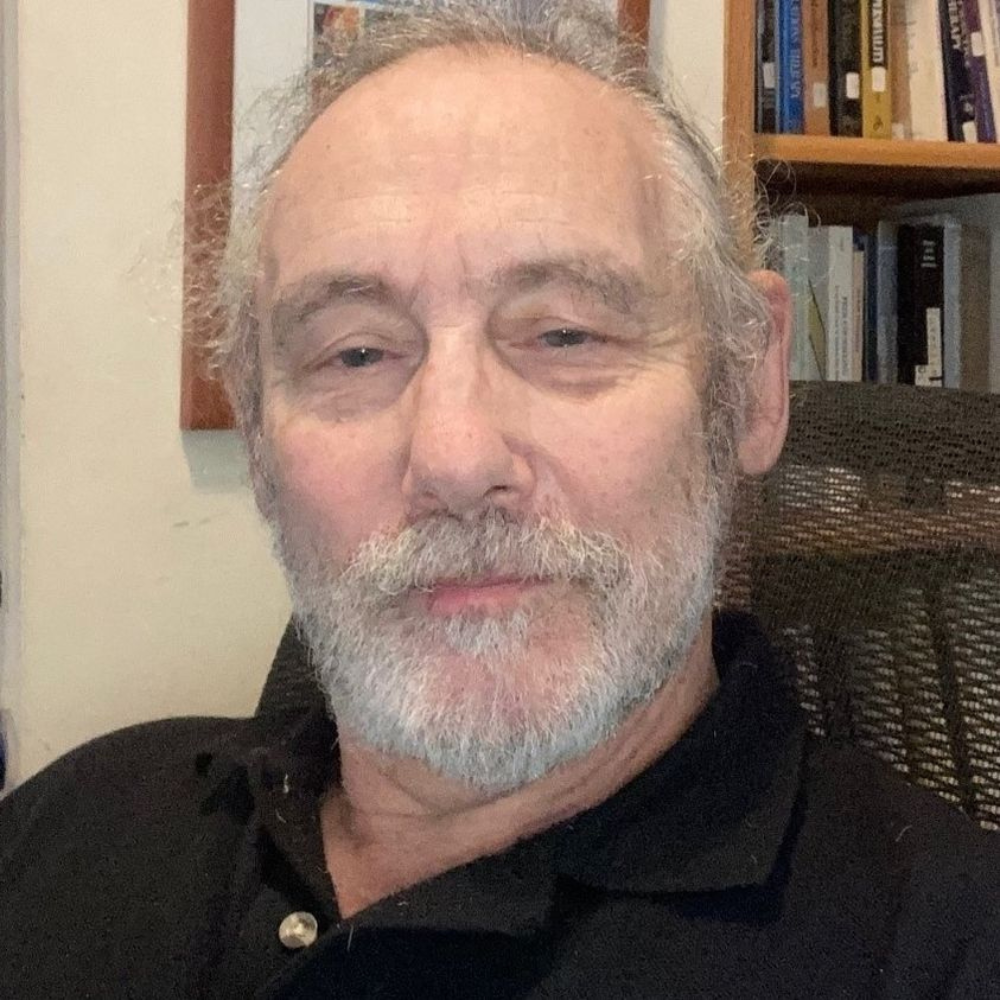
Assessing Adolescents Who Have Sexually Abused
Already purchased an On Demand training?
Click here to access your Safer Society On-Demand Training Center account.
The training provides an introduction to and overview of the contemporary process of sexual risk assessment for young people who engaged in sexually abusive behavior, including the necessity of a comprehensive assessment process. It reviews types of assessment, the two primary approaches to risk assessment, and the most commonly used assessments in assessing sexual risk in adolescents (and children), and will also look at the nature of and empirical support for both risk factors and juvenile risk assessment instruments.
Importantly, the training emphasizes the need for sensitivity to both context and developmental factors in evaluating children and adolescents, and the goal of recognizing the young person as a whole person and placing sexually problematic behavior into the context of both their psychosocial history and current psychosocial functioning. Understanding both the weaknesses and the strengths of the risk assessment process, the training also highlights the capacity and value of structured risk assessment instruments in helping to understand the nature and circumstances of risk for assessed individuals, as well as factors and circumstances that protect against risk, and their value as tools for treatment planning and case management.
Topics covered include:
- Definitions and ideas about risk
- Current approaches to assessment
- Conceptualizations of risk
- Review of risk assessment instruments and their empirical validity
- Embedding the use of risk assessment instruments into comprehensive assessment
- Contextual and developmental background to assessing juvenile behavior
- Risk and protective factors
- Practice guidelines
1) Explain contemporary approaches to juvenile sexual risk assessment.
2) Describe the strengths and limitations of the risk assessment process.
3) Describe the value of structured risk assessment instruments in case management and treatment planning.
4) Explain how a risk assessment instrument is used.
5) Explain how the assessment process allows informed estimates of risk.
6) Apply ATSA’s 2017 adolescent guidelines in the sexual evaluation of children and adolescents.
Audience
This training is for professionals working with adolescents who have sexually abused others. Professionals who will benefit from this training include social workers, psychologists, clinical counselors, and interested paraprofessionals.
Content Level
Disclosure
Continuing Education Approval
American Psychological Association (APA)
Safer Society Foundation, Inc. is approved by the American Psychological Association (APA) to sponsor continuing education for psychologists. Safer Society Foundation, Inc. maintains responsibility for this program and its content.
Who's Presenting

Phil Rich, Ed.D., LICSW
Phil Rich presents, trains, and consults nationally and internationally, specializing in work with children with problematic sexual behavior and adolescents and young adults who have engaged in sexually abusive behavior. He holds a doctorate in applied behavioral and organizational studies and a master’s degree in social work, and has been a licensed independent clinical social worker for almost 40 years. Phil served for 13 years as the Clinical Director of a large residential treatment program for children, adolescents, and young adults who have engaged in sexually abusive or sexually troubled behavior, and has been the Program or Clinical Director of six residential or day treatment programs. Phil is the author of four books that address work with sexually abusive youth, as well as multiple contributed chapters and articles, and a series of inter-related workbooks for youth in treatment for sexually problematic behavior, now in their second edition. He is a fellow of the Association for the Treatment of Sexual Abusers, served as the juvenile practice representative on the ATSA Executive Board, and was the founding chair of ATSA’s juvenile practice committee.
